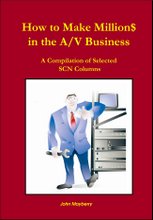California Democrat wants to tax your downloads...
Bill would add tax to music downloads
By Edwin Garcia, Sacramento Bureau
Article Launched: 04/06/2008 10:50:40 PM PDT
Don't get too used to those 99-cent downloads from iTunes.
A Los Angeles-area lawmaker trying to help raise money to delete the state government's $8 billion shortfall thinks consumers should pay sales tax when buying from online music stores.
Some avid iTunes users - not to mention other state legislators and tax regulators - disagree.
"I think he's wrong - he should go find money somewhere else," said Fabiola Rojas, a 27-year-old graphic designer in Mountain View. "What iTunes charges now is enough."
The proposal by Assemblyman Charles Calderon, D-Industry, doesn't seek directly to tax music tracks, but instead would require the Board of Equalization to update a 75-year-old law that authorizes sales tax collections on tangible personal property.
Music, books and videos downloaded off the Internet aren't now considered tangible goods.
"The notion of taxing tangible, physical property is really an industrial-era construct when we made widgets and sold widgets," Calderon said Friday. "Now it's not about widgets, it's about information, and selling information and moving information."
If Calderon prevails, the 8.25 percent to 8.75 percent sales-tax rates in effect in most of the Bay Area would raise the cost of that 99-cent download to $1.07 or $1.08.
But his measure is being soundly criticized by Republicans who are opposed to any kind of tax increases to solve the deficit problem.
"One of the growing parts of our economy, tech online and Internet, is something we should encourage without having these types of taxes," said Assemblyman Guy Houston, R-Livermore.
It's unclear how much money the download tax would generate.
The Board of Equalization believes state and local revenues would increase by about $114 million a year, but Calderon's estimate, which he said includes pornography downloads, is about $500 million.
His bill, AB1956, comes at a time when Apple reports that its iTunes store has leap-frogged over Wal-Mart to become the top music retailer in the U.S. with more than 4 billion downloads sold.
Apple has not taken a position on the legislation, a spokesman said.
The measure moves to a tax and revenue committee hearing April 14, but already some members of the Board of Equalization, the regional commission that administers the state's tax programs, have denounced it.
By seeking to make the board to redefine downloads as tangible property, said member Michelle Steel, transactions would be subjected to an automatic tax not authorized by the Legislature, which could invite a legal challenge. Under current law, taxes proposed in the Legislature can be raised only with a two-thirds vote of the Senate and Assembly, which is nearly impossible because of Republican resistance.
About This Blog:
Integrating complex electronic projects requires industry individuals keep abreast of the latest technological trends.
Some things are important, many ironic, others outright frauds, and a few are just so very wrong. Occasionally the original technological goal and downstream results are in hilarious conflict.
Usually "the latest trends" go back fifty to one hundred years in their development and are only new to the uninformed. In most every case, the ancients have truly stolen our inventions!
As far as we know, this is the only place that collects them and lets you celebrate them for yourself. We'd love to hear from you if you have something we've missed!
Some things are important, many ironic, others outright frauds, and a few are just so very wrong. Occasionally the original technological goal and downstream results are in hilarious conflict.
Usually "the latest trends" go back fifty to one hundred years in their development and are only new to the uninformed. In most every case, the ancients have truly stolen our inventions!
As far as we know, this is the only place that collects them and lets you celebrate them for yourself. We'd love to hear from you if you have something we've missed!
Blog Archive
-
▼
2008
(332)
-
▼
April
(42)
- Where's Your Money Going?
- Wanna Sell A/V to the Government?
- Logical Disconnect?
- Microsoft Deadline for Yahoo Passes Uneventfully
- Grateful Dead's Wall of Sound- Insider's Interview
- The World's Sexiest Speakers- Put Your Girlfriend ...
- Aviation Fans Only
- Fritz Sennheiser Inducted into Hall of Fame
- OK, it's not real...
- Cool!
- Disneyland in Baghdad?
- Codec Problems on Your PC?
- Is Nothing Sacred?
- Project Canoe Heating Up
- Nice Disney Story
- Corporate IT Green Initiatives
- Liverpool Girls
- Can Blockbuster Afford Circuit City?
- The Pope on Freedom
- Dark Matter Really Exists?
- Forget the Hybrid's Batteries?
- AVI-SPL Merger Finalized
- Another Scream Queen Leaves Us
- Metric Reference Changes (Again)
- JVC to Drop Out of Television Business?
- Did Google "Game" the FCC Auction?
- XP Users Petition Microsoft to Keep it Alive
- Seagate Trying to Buy Time
- AES 60th Anniversary Video
- Blockbuster Bids for Circuit City
- Economics 101
- Internet Advertising
- Job Site Delays at Orlando Airport
- Comcast and Cable Boxes
- Real High Definition Video over IP
- Great Article on Departing Employees
- Where's Florence Henderson When We Need Her?
- 9 Cents for Nothing
- Digital Video Quality
- LA Times Anti-Disney Editorial
- American Workplace 2009
- The average large U.S. business was attacked 150,0...
-
▼
April
(42)


